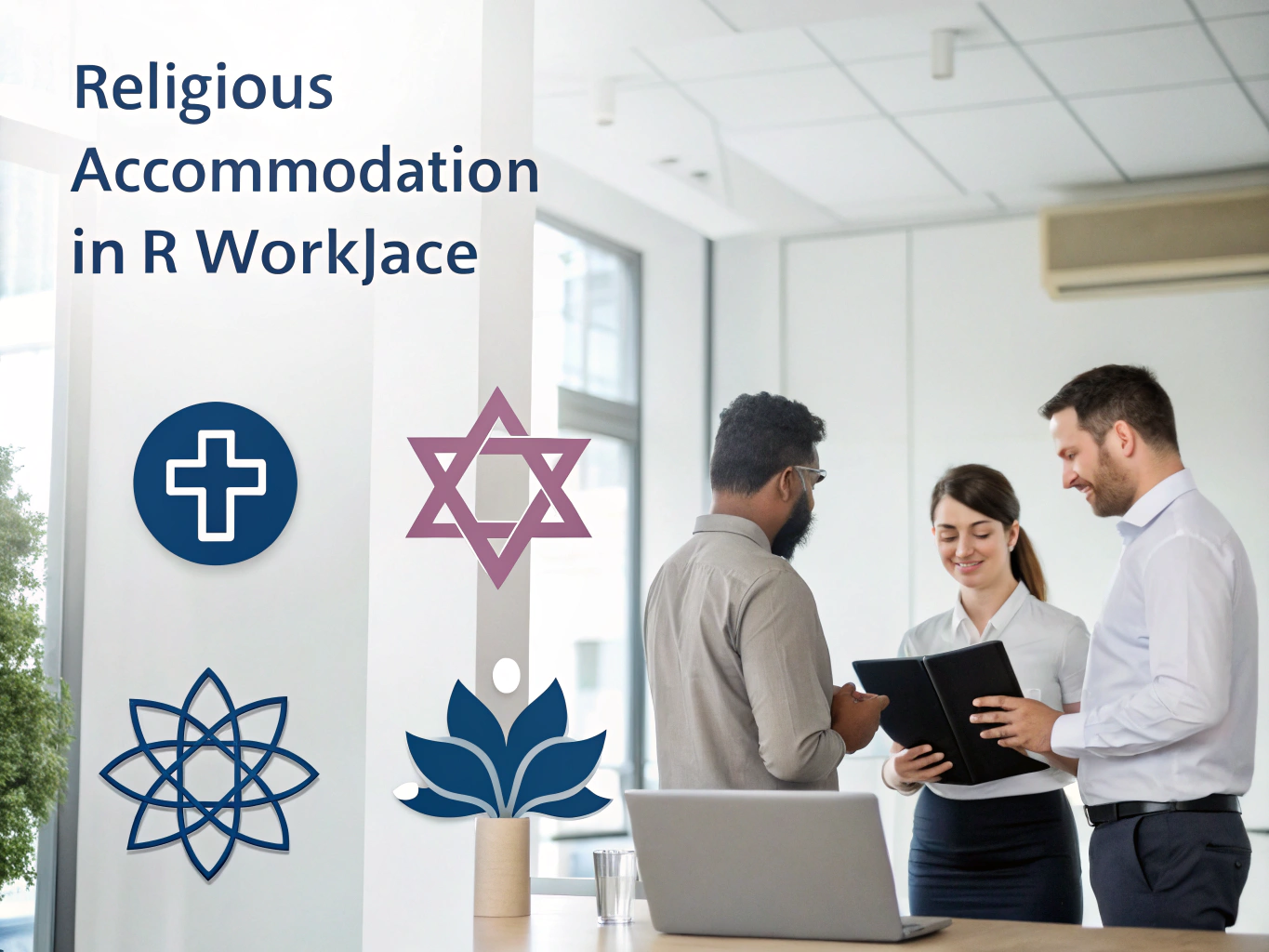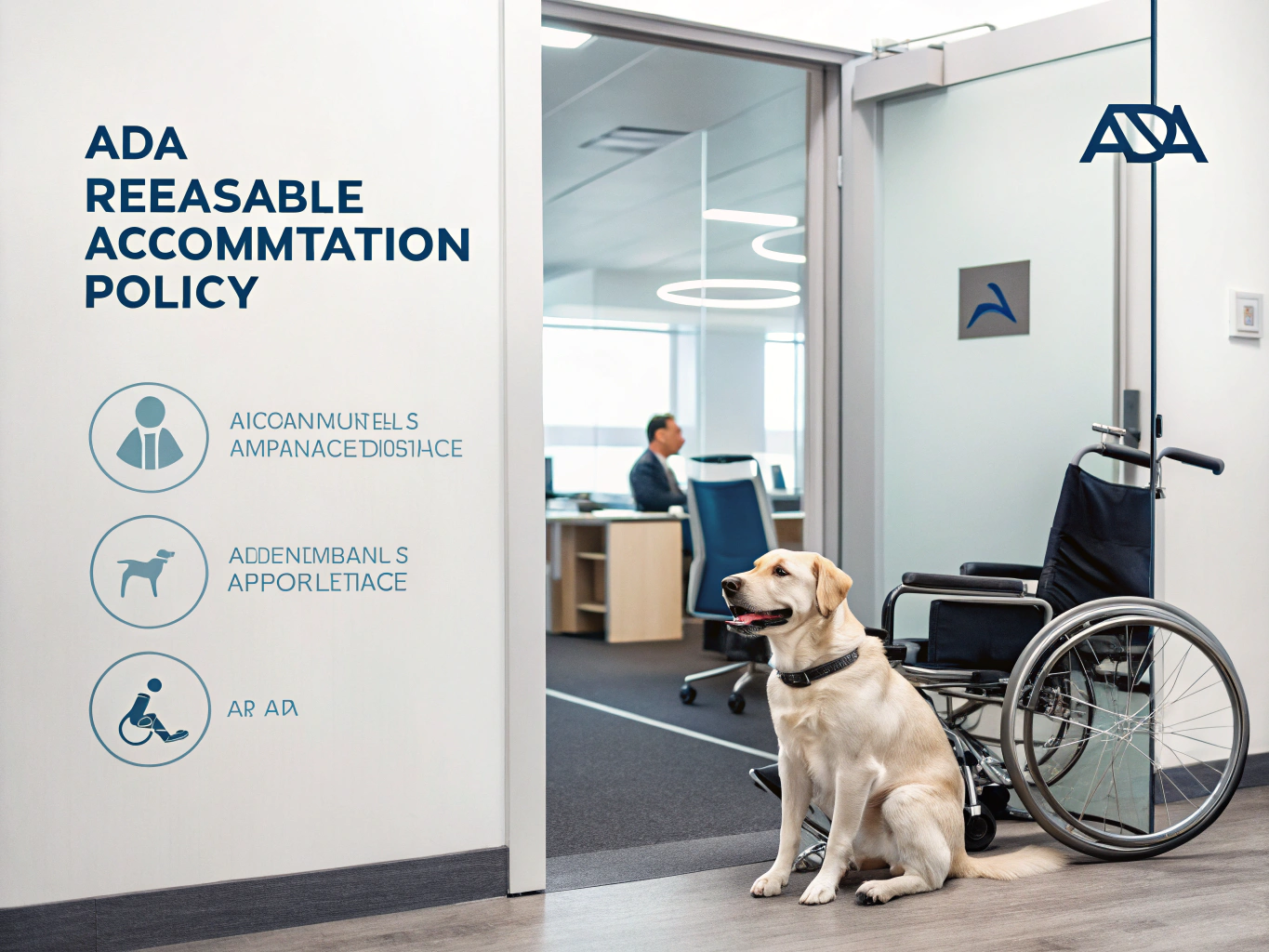Definition
Religious accommodation is the practice of making reasonable adjustments in the workplace to support employees’ religious beliefs and practices. It’s all about creating an environment where everyone can express their faith without fear of discrimination or hardship. Whether it’s allowing time off for religious holidays or modifying dress codes, this concept is essential for fostering inclusivity and respect in your organization.
Key Components
Understanding the key components of religious accommodation can help you navigate this important area of HR effectively. Here are some vital elements to consider:
- Reasonable Accommodation: Employers are required to take reasonable steps to accommodate an employee’s religious practices unless it imposes an undue hardship on the business. For example, if an employee needs a flexible schedule to observe a religious holiday, consider how you might adjust their hours to meet this request.
- Interactive Process: It’s crucial to engage in a dialogue with employees who request accommodations. This means having open conversations about their needs and exploring possible solutions together. For instance, if someone asks for time off for prayer, discuss how that can fit within their work schedule.
- Documentation: Maintain clear records of all accommodation requests and discussions. This not only helps you comply with legal requirements, but it also tracks patterns and informs future requests. A simple spreadsheet can go a long way in keeping things organized.
- Diverse Beliefs: Recognize that religious beliefs vary widely. Be open to learning about different customs and traditions, which can help you create a more respectful workplace. For example, if you have employees from various backgrounds, consider hosting a cultural awareness day.
- Undue Hardship: Understand what constitutes undue hardship. This could include significant costs, safety risks, or disruptions to workflow. It’s essential to evaluate each request on a case-by-case basis to determine its feasibility.
Importance in the Workplace
Religious accommodation is not just a legal requirement; it’s a critical component of a supportive workplace culture. When employees feel their beliefs are respected, it boosts morale, enhances productivity, and fosters loyalty. For instance, a company that allows flexible working hours for observant employees can see increased job satisfaction and retention rates. Imagine a scenario where an employee who observes Ramadan is given the option to adjust their lunch break; this small change can make a significant difference in their daily experience at work.
Best Practices
Implementing effective religious accommodation practices can be straightforward if you follow these best practices:
- Develop Clear Policies: Create a policy that outlines your commitment to religious accommodation. This should explain how employees can request accommodations and what they can expect during the process.
- Train Your Team: Conduct training sessions for HR staff and management on the importance of religious accommodation. This will help everyone understand their roles and responsibilities in fostering an inclusive environment.
- Encourage Open Communication: Foster a culture where employees feel safe to express their religious needs. Regularly remind your team that they can come to you with requests without fear of judgment.
- Be Proactive: Anticipate potential religious conflicts, especially around major holidays. Communicate with staff well in advance to discuss their needs and plan accordingly, ensuring everyone feels included.
- Review and Adapt: Regularly review accommodation requests and outcomes to identify trends and improve your processes. This helps you stay responsive to your employees’ needs over time.
Legal Considerations
Religious accommodation is protected under various employment laws, such as Title VII of the Civil Rights Act in the U.S. This law prohibits discrimination based on religion and mandates that employers provide reasonable accommodations. However, it’s essential to note that what is considered “reasonable” can vary based on the specific circumstances of each case. Staying informed about local laws and regulations regarding religious accommodation is crucial to ensure compliance and protect your organization from potential legal challenges.
Conclusion
Understanding religious accommodation is vital for creating an inclusive and respectful workplace where all employees can thrive. By taking proactive steps to accommodate religious needs, you not only comply with legal requirements but also build a culture of diversity and acceptance. Remember, fostering an environment that respects religious beliefs is not just good for your employees—it’s good for your organization as a whole, leading to higher engagement and a more positive workplace atmosphere.




